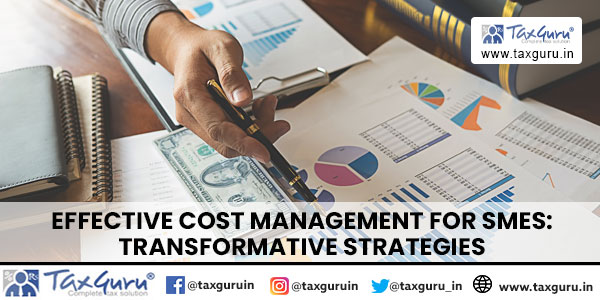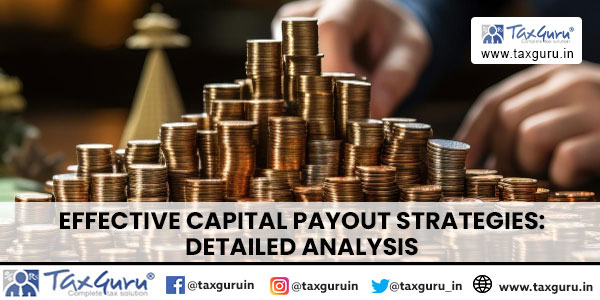Sandeep Kumar Singh
 Introduction: The Finance Bill, 2015 has received the assent from Hon’ble President of India on 14.05.2015. The proposed increase in the rate of service tax from 12.36% to 14 % has also been notified vide notification no. 14/2015-S.T. dated 19.05.2015. The increased rate will be effective from 01.06.2015.
Introduction: The Finance Bill, 2015 has received the assent from Hon’ble President of India on 14.05.2015. The proposed increase in the rate of service tax from 12.36% to 14 % has also been notified vide notification no. 14/2015-S.T. dated 19.05.2015. The increased rate will be effective from 01.06.2015.
As there is increase in the rate of service it has great impact in the transition from 12.36% to 14% to the provider service as well as recipient of service. Though, there are explicit provisions under Rule 4 of POT rules that if the Invoice has been raised or payment is received in respect of service provided or agreed to be provided before the change in the rate of service tax the old rate of service tax will be applicable, however, cases of service tax payable by recipient of service, Rule 7 of POT Rules applies which provides that if the payment of said bill is made after change in the effective rate of service, the service tax will be payable by new Rate of service tax.
Detailed Discussion:
For better understanding let us reproduce the relevant portion of Rule 4 & 7 of Point of Taxation Rules, 2011 (In short POT Rules) simultaneously:
| POT Rule 4 | POT Rule 7 |
|
RULE 4. Determination of point of taxation in case of [change in effective rate of tax. in case a taxable service has been provided before the [change in effective rate of tax],- (i) …….. (ii) where the invoice has also been issued prior to [change in effective rate of tax] but the payment is received after the [change in effective rate of tax], the point of taxation shall be the date of issuing of invoice; or (iii) where the payment is also received before the [change in effective rate of tax], but the invoice for the same has been issued after the [change in effective rate of tax], the point of taxation shall be the date of payment; |
RULE 7. Determination of point of taxation in case of specified services or persons.—
Notwithstanding anything [contained in rules 3, 4, or 8], the point of taxation in respect of the persons required to pay tax as recipients of service under the rules made in this regard in respect of services notified under sub-section (2) of section 68 of the Act, shall be the date on which payment is made : Provided that where the payment is not made within a period of three months of the date of invoice, the point of taxation shall be the date immediately following the said period of three months |
On plain perusal of Rule 4 (i) & (ii) of POT Rules, it may be seen that if the service has been provided, before change in the effective rate of tax and payment or invoice also raised or received before the change in the effective rate of tax, the point of taxation will be the date of invoice or payment, meaning thereby old rate of service tax will be applicable.
Further, Rule 7 of POT Rules starts with the word “Notwithstanding anything contained in rules 3, 4, or 8”, hence this rule has an overriding affect on Rule 3, 4, or 8 of POT Rules. This Rule provides that wherever the service recipient is liable to pay service tax the point of taxation shall be the date on which payment is made.
First proviso to Rule 7 of POT Rules prescribes that in case the payment is not made within three months of the date of Invoice the point of taxation shall be the date immediately following the said period of three months.
According to above provisions of Rule 7 read with 1st proviso of POT Rules, in case service tax is payable by the recipient of service, the service tax would be payable on at applicable rate on the date of payment of service value or the date after three month from the date of bill whichever is earlier.
Hence, in the cases where service tax is payable by the recipient of service, even if the service is provided, invoice is raised before the change in the effective rate of service tax, if the payment is made after change in the effective rate of tax, the service tax would be payable with new changed rate of service tax by virtue of the provision of Rule 7 of POT Rules, 2011.
The recipient of service has been deprived from the benefit for Rule 4 of POT Rules because the Rule 7 of POT Rules has an overriding affect on the Rule 4 of POT Rules, as explained above. Let us understand the position of service tax payable by the recipient of service by way of an example:
For example GTA service is provided on 25.02.2015, the bill is raised on 10.03.2015 and the said bill is booked in the books of accounts on 25.03.2015 but the payment of said bill for any reason is released in the month of June’2015 say on 05.06.2015.
In this case the point of taxation will be on 05.06.2015 and the service tax will be required to be discharged with new rate @ 14% which is effective from 01.06.2015.
The transition from 12.36% to 14% is going to impact the service recipient with the additional liability even if the service is provided and bill is raised before change in the effective rate of tax i.e. 01.06.2015. The service wise impact of additional liability of service tax on Rs. 1 Crore value of each service will be as under:
| Sl. No. | Service Name | Service Tax on Rs. 1 Crore value of service @ 12.36% | Service Tax on Rs. 1 Crore value of service @ 14% | Additional Liability to recipient of Service on account of Rule 7 of POT Rules . |
| 1 | Goods Transport Agency (GTA) on 30% abated value | 360000 | 420000 | -60000 |
| 2 | Manpower, Security, Legal, Sponsorship Service on 100% Value | 1200000 | 1400000 | -200000 |
| 3 | Renting or Hiring of Motor Vehicle Service on 40% abated Value | 480000 | 560000 | -80000 |
| 4 | Works Contract Service on 70% of 50% value of service | 420000 | 490000 | -70000 |
From the above, it is crystal clear that if the companies who are covered under reverse charge mechanism wish to save the additional burden of the service tax on the services provided and bills raised till 31.05.2015, they need to release payment to the service provider and discharge the service tax liability on the said bill with old rate otherwise if the payment to service provider is released after change in the effective rate of tax they will have incur the extra service tax burdent as shown in the table above.
Further, Rule 4 of POT Rule is very specific which is specifically for Determination of point of taxation in case of change in effective rate of tax, hence one interpretation also may be that the Rule 4 POT Rules being specific for change in the rate will apply for transition from 12.36% to 14% for both i.e. the provider of service of recipient of service.
The above anomaly is liable to be resolved by the CBEC very soon, otherwise number of litigation will arise on this account.
Conclusion:
In my personal view the persons liable to pay service tax as recipient of service may discharge their service tax liability according to Rule 7 of POT Rules, unless the issue is not clarified by the CBEC as proposed above.
( Author is Deputy Manager-Indirect Taxation at Bajaj Hindusthan Sugar Ltd., Noida and views expressed are his personal views)























Dear Sir,
Union budget has put the responsibility on the receiver of the service to pay the service tax charged to the receiver. My company is the service expoters. Hence we have not registered with Service Tax authorities & we do not have Service tax no.For example we hire security services for which we receive the bill of Rs. 112.36 including service tax for the services of Rs.100.
In the above case pl advise whether we have to deposit Rs. 12.36 to Service tax authority & pay the security contract only rs. 100. Or caan we pay him Rs. 112.36 . In case we have to deposit Rs. 12.36 to service tax authority what will be the procedure.Pl advise.
Sir,
Thanks for providing us such a knowledgeable analysis
Please clear following issue–
(1)What is POT?
(2) some budy told me that rule of WCT in 40% under reverse charged macnism has been changed.Please also provide your anlysis about WCT
Thanks
With Best Regards
VIVEK
It is very useful for us. Thnx sir
Dear Mr. Sachin
1. If you are taking GTA service for providing taxable service or manufacture of dutiable goods, CENVAT Credit of Serive tax paid on GTA inward freight on 30% of gross value i.e.after abatement can be availed.
2.Serive tax paid on Security Services/Recruitment Services on 75% of gross value i.e.after abatement is available as CENVAT Credit if the same has been taken at the registerd premises. w.e.f. 01.04.2015 service tax on 100% value of security service is applicable.
3.Serive tax paid on Manpower services on 100% of gross value i.e.after abatement is available as CENVAT Credit if the same has been taken for providing taxable service or manufacture of dutiable product.
4. Whereever you want to discharge service tax at old rate, you need to release payment of siad service to service provider on or before 31.03.2015, then you can discharge the service tax at old rate i.e. 12.36% before due date i.e. 06.06.2015.
Hope the above will sufice to provide clarification of your queries.
Regards,
Sandeep KR. Singh
BHSL
Dear Sir,
Thanks, however pls.clarrify can we avail credit on below
1. Serive tax paid on GTA inward freight on 30% of gross value i.e.after abatement.
2.Serive tax paid on Security Services/Recruitment Services on 75% of gross value i.e.after abatement.
3.Serive tax paid on Manpower services on 100% of gross value i.e.after abatement.
4. can we pay the service tax on or before 31.05.2015 @ 12.36% on above all services & avoide additional 2% of tax. (only in case of GTA Outward & Rent a Cab)
Awaiting feedback
Thanks
Sachin
Thanks a lot to you ….nicely explained.keep it up sir
very useful analysis & helpful to avoid go in litigation about future transaction.